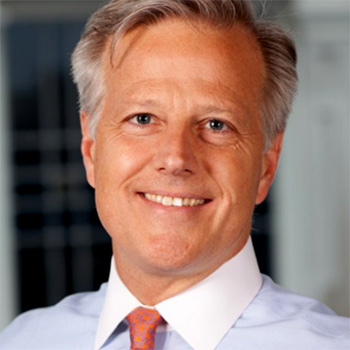Back to series



Download or Listen to Audio
Cultivating Godly Ambition
Click here to open a Print- Friendly PDF
Most Christians are taught to believe that ambition is sinful and therefore to be avoided. “Blessed are the meek,” the Beatitude instructs, “for they shall inherit the earth.” In the meantime, however, it seems that the ambitious, not the meek, are laying claim to the earth quite successfully, and not only in worldly pursuits. Ministries, churches, and evangelistic crusades are often birthed and built up by people with tremendous energy and ambition. Is that wrong?
Sincere Christians who yearn after some great goal may reasonably conclude that what they have been taught in church about ambition is incompatible with a life of achievement and success. At least some of them decide, whether consciously or not, that the Christian life cannot contain their aspirations, and they quietly break away, plunging headlong into the world of their dreams and desires. They may still go to church and be known as Christians, but in fact they are barely distinguishable from their secular counterparts in the way they advance their goals, the way they treat their underlings, the premium import cars they drive, and their moth-like attraction to celebrity and media.
That is just one kind of tragedy that results from the apparent conflict between human ambition and godly living. Another kind is when a Christian, usually a recent convert, gives up on some goal or gifting because he or she believes it is not “Christian” enough. That is what nearly happened to the great British social reformer William Wilberforce, who was fortunately convinced by a wise, older believer that his calling to the world of power and politics was just as noble, and could be just as fruitful, as a life spent as a parish priest.
Is ambition inherently sinful? Or can it be a force for good? Are there principles we may discern and apply for exercising ambition in an honorable, godly way?
Here in Washington, D.C., where there are more high school class presidents per square foot than any other place on earth, the answers would appear to be yes, no, and doubtful. It’s a city where people read the distinguished weekly National Journal from back to front: first checking the index for any mentions of them, and then scanning the “People” section to see whether any of their colleagues are moving ahead of them. Some say the most dangerous place in Washington is the space between a television news camera and an aspiring congressman.
But for all those sad caricatures of misplaced ambition, we may still find hope that human ambition can be reconciled with godly character, in the life of the Apostle Paul.
When Paul was still Saul, prior to his conversion, he made himself a central figure in the persecution of the early church. He even solicited special letters of introduction to pave his way to Damascus, so that he could personally lead the anti-Christian campaign in that crucial city. Like many ambitious people, Saul had vision: he saw the early church as a blasphemous, dangerous cult, and grasped that an outpost church on a major trade route could become a germinating spore.
It is worth reflecting on these terrible events, and Paul’s later sorrow over them, because they reveal a crucial error that many Christians fall into concerning ambition. They may be tempted to say, “Of course, ambition is wrong because it is tainted with self-interest. Zeal, on the other hand, is admirable because it is focused on something higher than our selves, especially if it is religious zeal.” Regardless of whether zeal and ambition can in fact be distinguished from one another, we need only look at the example of Paul prior to his conversion to see how zeal—even if it seems completely free of self-interest—can turn into something brutal, self-justifying and rapacious. Over the centuries, millions of people have died at the hands of zealots who were selfless in their devotion to a virulent religious sect or ideology. Disinterested zeal is no guarantee of godliness—or even human kindness.
 We can see that in Saul as he rides toward Damascus, full of grim purpose and armed with the appropriate credentials. Ambitious people are often obsessed with amassing the right credentials: titles, diplomas, photographs with famous people, and that all-important assurance of significance in our media-drenched age, press clippings. Later in life, Paul would review his resume with acid irony: “If anyone thinks he has reasons to put confidence in the flesh, I have more: circumcised on the eighth day, of the people of Israel, of the tribe of Benjamin, a Hebrew of Hebrews; in regard to the law, a Pharisee; as for zeal, persecuting the church; as for legalistic righteousness, faultless.” But as he rode out to launch his Damascus campaign, Saul was a rising star in Pharisee circles. Today he would be called a “young man in a hurry,” one of the highest compliments that Washington can bestow. And then he heard a voice—the voice of Jesus—and his whole view of the world, and of himself, was forever changed.
We can see that in Saul as he rides toward Damascus, full of grim purpose and armed with the appropriate credentials. Ambitious people are often obsessed with amassing the right credentials: titles, diplomas, photographs with famous people, and that all-important assurance of significance in our media-drenched age, press clippings. Later in life, Paul would review his resume with acid irony: “If anyone thinks he has reasons to put confidence in the flesh, I have more: circumcised on the eighth day, of the people of Israel, of the tribe of Benjamin, a Hebrew of Hebrews; in regard to the law, a Pharisee; as for zeal, persecuting the church; as for legalistic righteousness, faultless.” But as he rode out to launch his Damascus campaign, Saul was a rising star in Pharisee circles. Today he would be called a “young man in a hurry,” one of the highest compliments that Washington can bestow. And then he heard a voice—the voice of Jesus—and his whole view of the world, and of himself, was forever changed.
If we had stage-managed Jesus’ confrontation of Saul on that Damascus road, no doubt we would have struck a very different chord. There would be lightning, and God’s voice thundering from heaven in righteous indignation: “Saul, in thy abominable pride, thou hast persecuted My people, and unless Ye repent, I shall annihilate thee in My dreadful wrath!” Instead Saul, and Saul alone, hears Jesus ask him a question. It is an intensely personal, searching question, full of plaintive concern: “Saul, Saul, why are you persecuting Me?”
Saul falls to the ground and asks the Voice, whom he instinctively calls, “Lord,” to identify himself. The Voice answers with pastoral tenderness: “I am Jesus, whom you are persecuting. It is hard for you to kick against the goads.”
Jesus confronts Saul’s bristling ambitions— and ours—with a question aimed straight at our hearts: “Why are you doing this?” Set aside for a moment what the substance of the goal is; Jesus’ question probes at the underlying reasons. Why? What’s motivating you? What are you really after in all of this? Do you even know what you are doing? Saul thought he was doing something good and important: eradicating a cult that was a threat to his religious culture, a stain on God’s sacred honor. He had no idea how off-base he was.
Saul is stopped dead in his tracks not only because he hears a voice from heaven, but because he hears his own name—repeated, caressed. The Voice knows who he is, knows where he came from, and has tracked him down to this remote, dusty road. The word from God that shatters us, that brings us back to our senses, is not always a rebuke or a warning but our own name. The revelation that begins to change us and change the course we are on is the simple fact that God knows us, deeply and personally. He sees our hearts, our hopes, our fears. He sees who we are behind the public façade. “[H]e knows how we are formed, He remembers that we are dust.”
If we care to admit it, God actually knows us far better than we do. The voice that Saul hears on the Damascus road, the voice of the Good Shepherd, sees all of Saul’s ambitious fulminations as nothing more than a misguided sheep, kicking obstinately against the goads. In his own mind, Saul is making things happen, leading an important campaign. But in the clearer reality that Jesus sees, Saul is merely injuring himself, fighting against the mysterious purposes of God. How often that is true of ambitious, driven people: they see a vision, they launch a campaign, they push and push—and all they are doing is pushing against God, pushing against His standards and ways, and injuring themselves in the process.
Fortunately, it doesn’t stop there for Saul, or for us. It turns out that God has ambitions of His own, a vision for what we have the potential to be, in His strength and under His guidance. God informs Ananias, a believer living in Damascus who has heard of this murderous Saul: “This man is my chosen instrument to carry my name before the Gentiles and their kings and before the people of Israel.” After Ananias goes to Saul and lays hands on him, “something like scales” fall from his blinded eyes, a sign that Saul’s way of looking at life is being dramatically transformed. And so Saul begins to fulfill the mission that God had revealed to Ananias, God’s ambition for Saul—first in Damascus, then in Jerusalem, and throughout much of the known world.
What is striking about Saul after his conversion is how his earlier natural traits of ambition, vision, and drive stay with him—though they are utterly transformed by the Holy Spirit. Throughout the Book of Acts, Saul is portrayed—admiringly—as relentless, obstinate, confrontational, insistent, resolute, and absolutely driven by the desire to preach the Gospel, build up the churches, and bring glory to his beloved Savior.
What is equally, striking, however, is how Saul’s ambition differs from most of the natural ambition we encounter in the world, even among religious leaders.
The first critical difference was that Saul’s ambition was pursued in the rich soil of community. Thirteen chapters into the Book of Acts, Luke mentions almost as an afterthought, “Then Saul, who was also called Paul….” Somewhere along the way, Saul had acquired a new name: Paul. Many commentators postulate that Paul dropped his Hebrew name in favor of a Roman one, in order to relate more easily to the Gentiles. Some traditions also hold that Saul was short in stature, and the new name (meaning “little”) reflected that fact. Regardless of the origin, Saul had acquired something that is the ultimate sacrament of friendship: a new name. New names, including nicknames, reflect a deeper relationship, a closer bond. If he really was short, “Paul” would have been a goodnatured dig. Or perhaps the new Roman nickname was a wry observation—that this Hebrew of Hebrews had “gone Gentile.”
The vast majority of ambitious people climb their ladders alone, but Paul pursued his Godgiven goals in the company of friends. They ate together, worked together, prayed together, wept together, and ministered together. Most of the decisions that were crucial to Paul’s life and ministry were not made by him alone, but in a group, usually after fasting and prayer. His friends included peers like Barnabas as well as younger disciples like Timothy and Titus, whom he nurtured as if they were his own sons. These were vital, emotional relationships, which means they were subject to all the pain and disappointment that true friendship risks. Paul confronts Peter “to his face” in Antioch; Mark deserts Paul and Barnabas in Pamphylia; Barnabas and Paul have “such a sharp disagreement” over Mark that they part company altogether. Yet late in life, Paul sends for Mark again, and Peter refers to Paul as “our dear brother” in his second letter, when both of them are probably nearing martyrdom.
In Paul, we see how the fire of ambition can serve God’s purposes, but we also see how friendship sanctifies ambition and checks its soul-destroying potential. We desperately need the encouragement of friends that is described in Hebrews 3:13: “But encourage one another daily, as long as it is called Today, so that none of you may be hardened by sin’s deceitfulness.” Without real friends—provoking us, querying us, chastising us, standing with us, praying for us—we turn into hard, driven people, deceived and distorted by our moral blind spots.
The second crucial difference between Paul’s ambition and much of what we find in the world was that Paul’s greatest ambition was for Christ Himself. We are confronted again with the question Jesus posed to Saul on the Damascus road: “Why are you doing this?” Not what, but why? Many ambitious people, including Christians, focus so obsessively on the what that they lose track of the why. The corner office, the next election, the professional recognition, becoming partner, building the church roster, making your first million or your fifteenth—all reasonable goals, but why?
Paul was passionate about spreading the Gospel, he was in love with the church, and he was devoted to the vulnerable flocks under his care. Yet for Paul, the why was even more desirable than all these immensely important, God-honoring activities. When he describes his deepest longings in the letter to the Philippians, there is white-hot intensity in his words, a consuming ambition that makes all worldly striving seem lukewarm by comparison:
I consider everything a loss compared to the surpassing greatness of knowing Christ Jesus my Lord, for whose sake I have lost all things. I consider them rubbish, that I may gain Christ and be found in him…. I want to know Christ and the power of his resurrection and the fellowship of sharing in his sufferings, becoming like him in his death, and so, somehow, to attain to the resurrection from the dead. Not that I have already obtained all this, or have already been made perfect, but I press on to take hold of that for which Christ Jesus took hold of me…. Forgetting what is behind and straining toward what is ahead, I press on toward the goal to win the prize for which God has called me heavenward in Christ Jesus.
Every other ambition that Paul had was secondary to knowing Christ, gaining Christ, being found in Christ, sharing in His sufferings, and becoming like Him in his death. The fuel for Paul’s ambition was not his job—as noble as it might have been—but Jesus Himself.
The proof of this is evident at the conclusion of Paul’s life. By all appearances, his ministry had been a failure. Many of the churches he had helped found were falling away, embracing either Gnosticism or pagan immorality. Other “apostles” had surpassed him in perceived ability and influence. Some of his closest associates had abandoned him. All that remained for Paul was a martyr’s death, not in the mold of a valiant hero but, as Paul saw himself, “on display at the end of the procession, like men condemned to die in the arena…the scum of the earth, the refuse of the world.”
Passed over. Forgotten. Abandoned. Alone. Countless once-great people die in ignominy, their greatest achievements undermined, their monuments toppled, even their very names erased by the selective memory of history. Few “go gently into that good night.” Facing the twilight of their lives and their significance, they become debilitated by bitterness and regret. And after a life of compulsive achievement, amassing power and wealth and importance, they melt away, like the Wicked Witch of the West in The Wizard of Oz. “As for man…he flourishes like a flower of the field; the wind blows over it and it is gone, and its place remembers it no more.”
That’s not how we find Paul at the end of his life. Despite all the rejection, the disappointments, and the humiliations of imprisonment, Paul writes a final letter to Timothy that is full of hope. One moment he is dispensing advice, another he is asking for scrolls to be sent to him. He is surrounded by close friends, and reaching out to old colleagues.
 While many grow faint in the face of death, Paul seems positively inspired by it. He warns Timothy fervently about the coming “last days,” which he probably has realized he will not live long enough to see. And he compares his impending death to the pouring out of a drink offering, an act of pure, extravagant worship to God.
While many grow faint in the face of death, Paul seems positively inspired by it. He warns Timothy fervently about the coming “last days,” which he probably has realized he will not live long enough to see. And he compares his impending death to the pouring out of a drink offering, an act of pure, extravagant worship to God.
How could a man so mistreated, so marginalized, so apparently unsuccessful, finish out his days with such confident joy? Again, the answer is that Paul’s sights were set even higher than the great work that God had entrusted to him; they were set on heaven itself and the God who was calling him there. Churches may fall, and friends may betray, but Christ is the same, yesterday, today, and tomorrow. Paul’s deepest ambition was to know this Christ, above all else, so that when the time came for his “departure,” his external circumstances scarcely mattered.
It is significant that Paul uses his favorite imagery—athletic competition and military contests—to describe his impending death: “I have fought the good fight, I have finished the race, I have kept the faith.” For those who are ambitious after worldly aims, death is the bitter, nullifying conclusion. For Paul, death is a triumphant culmination, where a life of fruitfulness and devotion releases its fragrance to heaven, and the Voice that called us at the beginning declares it well-done indeed.
As we see in Paul’s life, God can make good use of people with passion, energy and vision—whether they serve in ministry, government, business, the non-profit world, the military, or at home raising children. It is no slight to God’s sovereignty to observe that ambitious, dedicated people often accomplish more than those who are reticent and phlegmatic.
So how do we pursue goals in a God-honoring way? How can we be ambitious without it corroding our souls? The secret is summed up in a word that Paul uses to describe ambition gone awry. “Do nothing out of selfish ambition,” Paul exhorts the Philippians. The word he uses is Greek, possibly coined by Aristotle in his treatise on Politics. It refers, in a derogatory way, to merely eking out an existence. For Greeks like Aristotle, one’s highest calling was to be a citizen, immersed in the civic affairs of the polis. To them, self-promoting climbers were like the poor castes outside of Athens’ elite society, preoccupied with nothing more than earning a day’s bread.
We (and Paul) emphatically reject such disdain for the strivings of the poor. But the transformation of this word into a generic description of perverted ambition suggests that the true danger of ambition is not aiming too high, but aiming too low. “Spending and getting, we lay waste our powers,” the poet William Wordsworth lamented. It is a sin to squander our energy and God-given talents on the ephemeral indulgences of recognition, status, fame, and respectability. Paul’s life tells us to aim higher—aim for heaven, aim for Christ’s glory, aim for the sweet knowledge of the Savior, aim for a life that makes death an act of emancipated worship and a welcome into our everlasting inheritance.

Steven J. Law
CEOSteven J. Law is the president and CEO of One Nation and American Crossroads, and President of Crossroads GPS – Spring ’18 with the Institute of Politics and Public Service at Georgetown university. Prior to this, he served as chief the Deputy Secretary at the U.S. Department of Labor. He has held numerous positions in Washington D.C. including Chief of Staff to Senator Mitch McConnell (R-KY) and Executive Director of the National Republican Senatorial Committee. He has a degree in music from the University of California, Davis, and received a J.D. from Columbia University School of Law.

 COPYRIGHT: This publication is published by C.S. Lewis Institute; 8001 Braddock Road, Suite 301; Springfield, VA 22151. Portions of the publication may be reproduced for noncommercial, local church or ministry use without prior permission. Electronic copies of the PDF files may be duplicated and transmitted via e-mail for personal and church use. Articles may not be modified without prior written permission of the Institute. For questions, contact the Institute: 703.914.5602 or email us.
COPYRIGHT: This publication is published by C.S. Lewis Institute; 8001 Braddock Road, Suite 301; Springfield, VA 22151. Portions of the publication may be reproduced for noncommercial, local church or ministry use without prior permission. Electronic copies of the PDF files may be duplicated and transmitted via e-mail for personal and church use. Articles may not be modified without prior written permission of the Institute. For questions, contact the Institute: 703.914.5602 or email us.
-
Recent Podcasts
From Politics to Pampers
by Michelle Morgan Knott, Aimee Riegert on November 15, 2024A stay-at-home mom shares life and spiritual lessons...Read More
-
An Unexpected Change – David Westerhoff’s Story
by David Westerhoff on November 8, 2024
-
The Faith of Jonathan Edwards
by Aimee Riegert, Arthur W. Lindsley on November 1, 2024
-
Recent Publications
Will You Be Ready?
by Thomas A. Tarrants on October 23, 2024Tom Tarrants gives insights on how we can...Read More
-
Should Christians Be Involved with Politics?
by Kerry A. Knott on October 1, 2024
-
Isn ’t Atheism Based on Scientific Fact Whereas Christianity is Based on “Faith”?
by Cameron McAllister on September 1, 2024
0
All Booked
0.00
All Booked
0.00
All Booked
23169
ADVENT CALENDAR: The Amazing Prophecies Fulfilled by the Birth of Jesus Christ
https://www.cslewisinstitute.org/?event=advent-calendar-the-amazing-prophecies-fulfilled-by-the-birth-of-jesus-christ&event_date=2024-11-28®=1
https://www.paypal.com/cgi-bin/webscr
2024-11-28

Next coming event
Days
Hours
Minutes
Seconds
ADVENT CALENDAR: The Amazing Prophecies Fulfilled by the Birth of Jesus Christ
On November 28, 2024 at 6:00 amSpeakers

Steven J. Law
CEO
Team Members

Steven J. Law
CEOSteven J. Law is the president and CEO of One Nation and American Crossroads, and President of Crossroads GPS – Spring ’18 with the Institute of Politics and Public Service at Georgetown university. Prior to this, he served as chief the Deputy Secretary at the U.S. Department of Labor. He has held numerous positions in Washington D.C. including Chief of Staff to Senator Mitch McConnell (R-KY) and Executive Director of the National Republican Senatorial Committee. He has a degree in music from the University of California, Davis, and received a J.D. from Columbia University School of Law.





